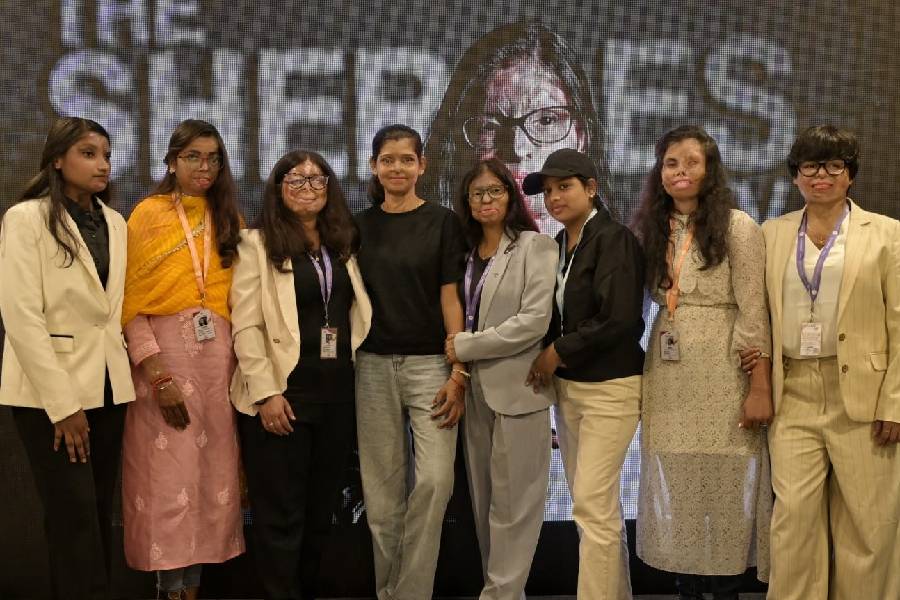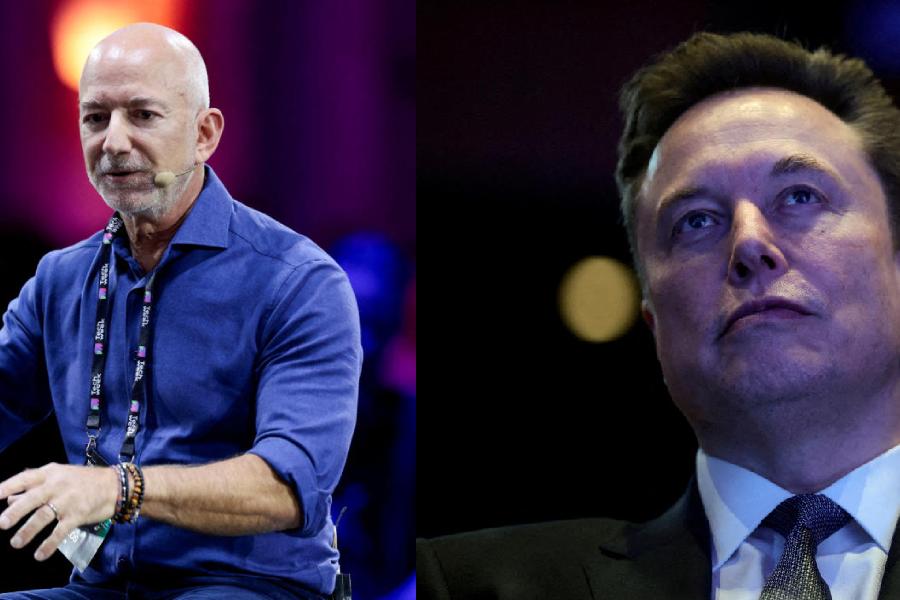Podcasting is booming in India and catching up on this trend are acid attack survivors, who are stepping into the spotlight as hosts of their own talk show, interviewing people from all walks of life, including actors, poets, writers and IAS officers.
Aiming to break the stigma associated with acid attack victims, this innovative podcasting venture is the result of collaborative efforts from the Chhanv Foundation, an NGO dedicated to supporting survivors through various means, including medical assistance, counseling, and employment through initiatives such as the Sheroes Hangout Café.
On Saturday evening, at an event held at Asmita Theatre Studio in suburban Mumbai, it launched The Sheroes TV, India’s first video platform for feminist dialogue entirely run by acid attack survivors.
Anshu Rajput, one of the hosts, shared her traumatic experience. At just 15, her life turned upside down, when a 55-year-old man attacked her with acid. The aftermath was a harrowing journey; for 13 hours, she received no treatment, as her parents and even the doctors were clueless when, where and how to treat her.
"For almost 13 hours I didn’t receive any treatment, my left eye was damaged because of that. Even though my parents gave me all the love and support, I went into a shell after I returned from hospital. The school authorities refused to allow me in the class, I didn't know what to do in life? In 2015, I got a rebirth when I learnt about Sheroes Café. Since then there has been no turning back, I completed my education, I learnt computers, I’m learning Spanish. I can do everything that a normal person can do," 27-year-old Rajput, who hails from Bijnor in Uttar Pradesh, said.
Joining Rajput as host will be Roopa (30) and Mousumi Halder (30), both of whom have their own inspiring stories of resilience.
Roopa, who was attacked by her stepmother, revealed how the support from the Chhanv Foundation changed her life, adding she considers its team as her family.
"In 2015, I came across Alok bhai and he supported me like a brother. After meeting him I realised I made a mistake of covering my face and that I shouldn’t be scared or ashamed of myself,” Roopa, who played a small role in the film "Akira", said.
Mousumi Halder, a burn survivor who has faced immense turmoil after her accident, described how her parents' support played a crucial role in her recovery.
Initially fearful of taking on the hosting role, she credited Chhanv Foundation for encouraging her to take up the opportunity.
"All we expect is that society should not demotivate us in such a scenario. When I saw a post about ‘Sheroes’ in 2020 on Facebook, I felt there’s a place for us where we will get acceptance. I was initially scared to host the show but the team pushed me to take up the opportunity," Halder said.
The Sheroes TV is a video-based initiative that will be broadcast across YouTube, Instagram, Facebook and X, and feature podcasts and interviews.
The team has already hosted a few episodes with acclaimed actors such as Faisal Malik, Zeeshan Ayyub, Anshul Chauhan, Lokesh Mittal, among others, for thought-provoking discussions on courage, equality, and social change.
Dixit said he hopes Sheroes TV will be able to bring about awareness in society of acid attack incidents in India.
"This is not just the launch of a media platform; this is the beginning of a revolution where survivors become storytellers, changemakers, and leaders of dialogue. We don't want people to see them as victims, or show pity towards them," Dixit told PTI.
"We intend to reach out to a larger audience and we felt we should explore this medium, and podcast is the in thing today. We saw a lot of podcasts today. For instance, if we've Faisal ji on the show, through his work, maybe we will be able to reach a wide audience. We hope Shah Rukh Khan will come on our show someday," he added.
The evening opened with a play titled "Dastak", about acid attacks in India, by the renowned Asmita Theatre Group. It is directed by Arvind Gaur.
"Theatre is a very strong medium and it plays an important role in bringing about awareness, and a change. It is a kind of social activism," Gaur told PTI.
"We’ve been working for 32 years and we’ve done several shows across India and we hope there will come a day when we will not have to do this play as such incidents will stop happening," Gaur said.
Except for the headline, this story has not been edited by The Telegraph Online staff and has been published from a syndicated feed.










